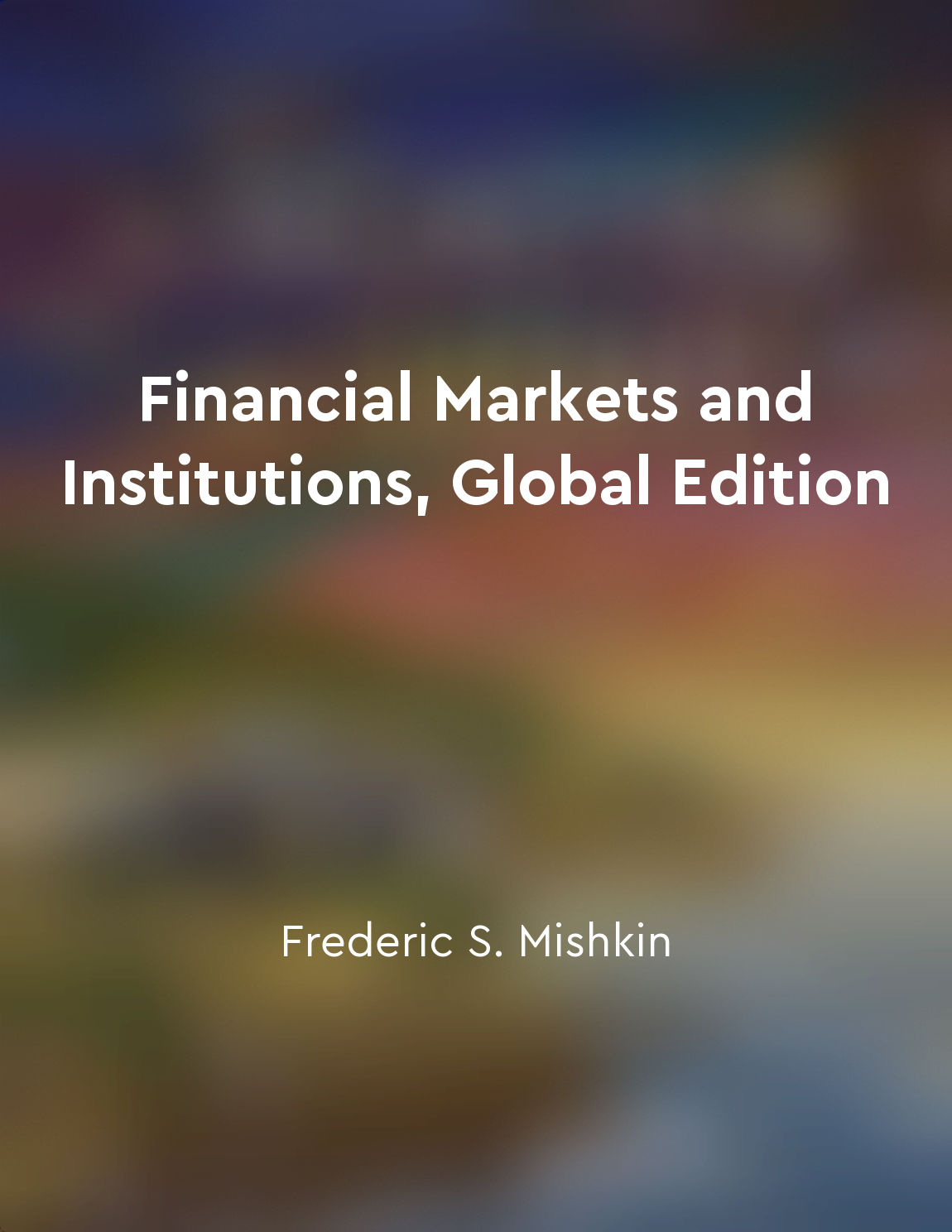The efficient market hypothesis suggests that asset prices reflect all available information from "summary" of International Financial Management, Abridged Edition by Jeff Madura
The efficient market hypothesis asserts that asset prices fully incorporate all information that is available to the public. This implies that it is impossible for investors to consistently achieve above-average returns by analyzing publicly available information. If this hypothesis holds true, it suggests that stock prices adjust rapidly to any new information that becomes available, making it difficult for investors to exploit any information asymmetries for profit. The efficient market hypothesis comes in three forms: weak, semi-strong, and strong. In the weak form, asset prices reflect all past trading information, such as historical prices and trading volumes. This implies that technical analysis, which involves studying past price movements to predict future price movements, is unlikely to yield above-average returns. In the semi-strong form, asset prices incorporate all publicly available information, including not only past trading data but also information on financial statements, economic indicators, and news reports. Lastly, the strong form of the efficient market hypothesis posits that asset prices reflect all information, including both public and private information. This means that even insiders with privileged information cannot consistently outperform the market. The efficient market hypothesis has important implications for investors and financial managers. For investors, it suggests that it is challenging to beat the market consistently through stock picking or market timing. Instead, investors may choose to adopt a passive investment strategy, such as investing in index funds that track the overall market. For financial managers, the efficient market hypothesis implies that it is difficult to generate excess returns through active portfolio management. Instead, financial managers may focus on minimizing costs and risks through diversification and asset allocation. Critics of the efficient market hypothesis argue that markets are not always perfectly efficient. They point to anomalies, such as stock price bubbles and crashes, as evidence that asset prices can deviate from their intrinsic values. Some researchers have also found evidence of predictability in asset prices, challenging the notion that markets fully incorporate all available information. Despite these criticisms, the efficient market hypothesis remains a foundational concept in finance and has influenced the development of modern portfolio theory and other investment strategies.Similar Posts
Longterm investing pays off
The idea of long-term investing is a simple one, yet it is often overlooked by many investors. The concept is straightforward: ...

Saving money is more important than earning money
The idea that saving money is more important than earning money may seem counterintuitive at first. After all, we are often tol...
Analyze the competitive landscape thoroughly
In examining the competitive landscape, it is imperative to delve deeply into the dynamics of the industry in which a company o...
Bubbles arise from positive feedback mechanisms
Bubbles are a fascinating phenomenon that can arise in various markets, from stocks to real estate. These bubbles are not rando...

Policy responses aim to mitigate the adverse effects of financial disruptions
When financial disruptions occur, policymakers typically respond by implementing various measures designed to lessen the negati...
Technical analysis is not a reliable strategy
Technical analysis, the practice of using historical price and volume data to predict future price movements, has long been a p...

Stay informed about market trends
To make smart investment decisions, it is crucial to keep up with what is happening in the market. Staying informed about marke...
Governments play a crucial role in the economy
Contrary to what many people believe, markets do not function in a vacuum. Governments play a crucial role in shaping the econo...
Rational actors make decisions based on selfinterest
Rational actors are individuals who are driven by self-interest when making decisions. This means that they carefully weigh the...

Historical examples highlight market irrationality
The examination of historical examples can provide valuable insights into the irrationality of markets. By looking back at past...

